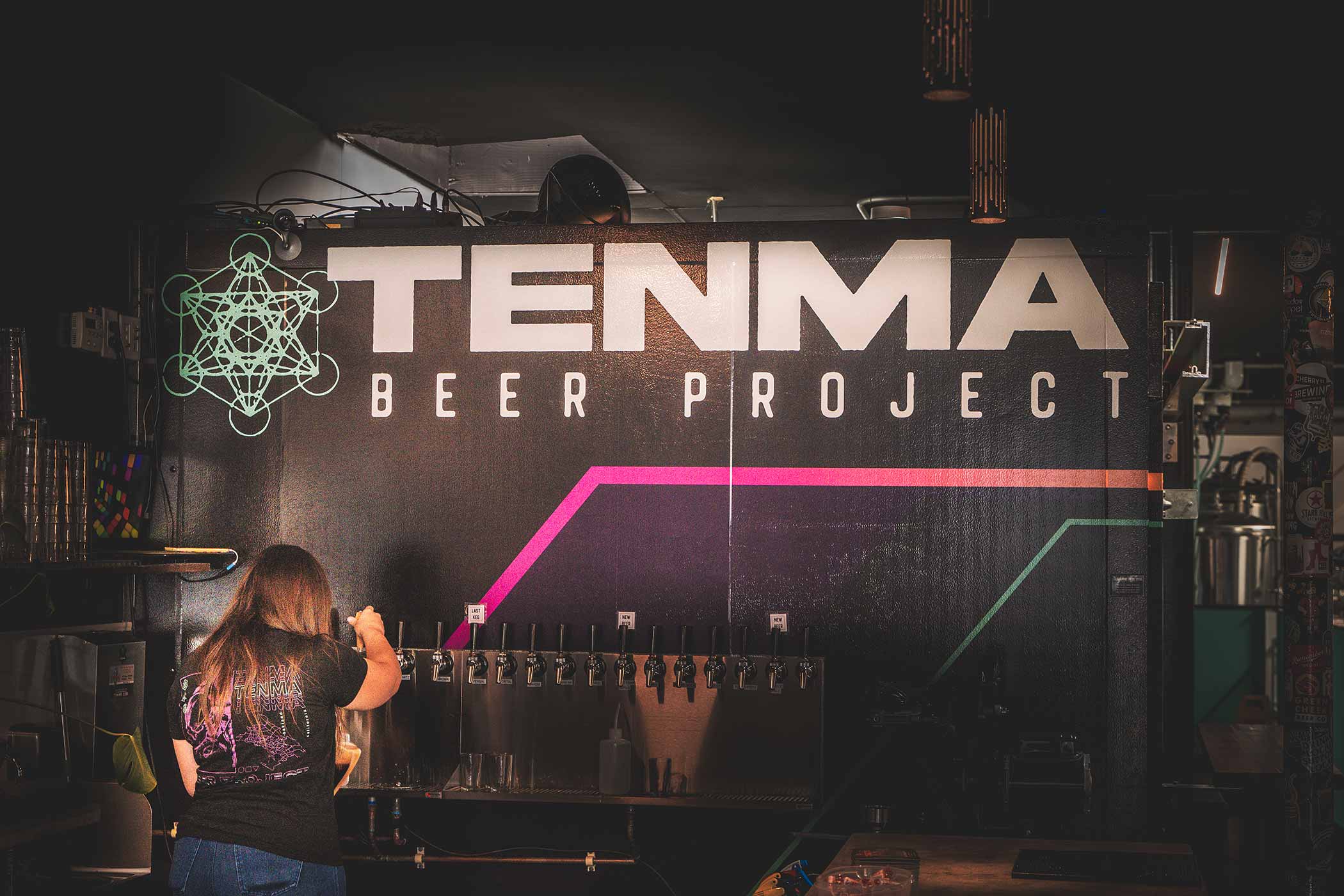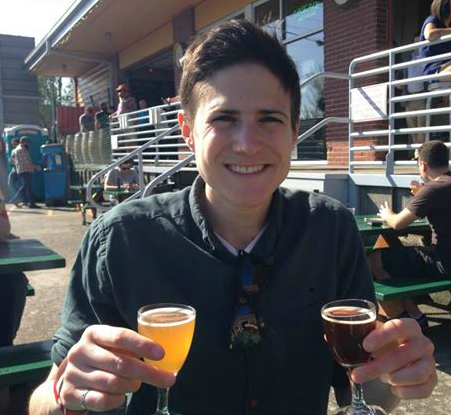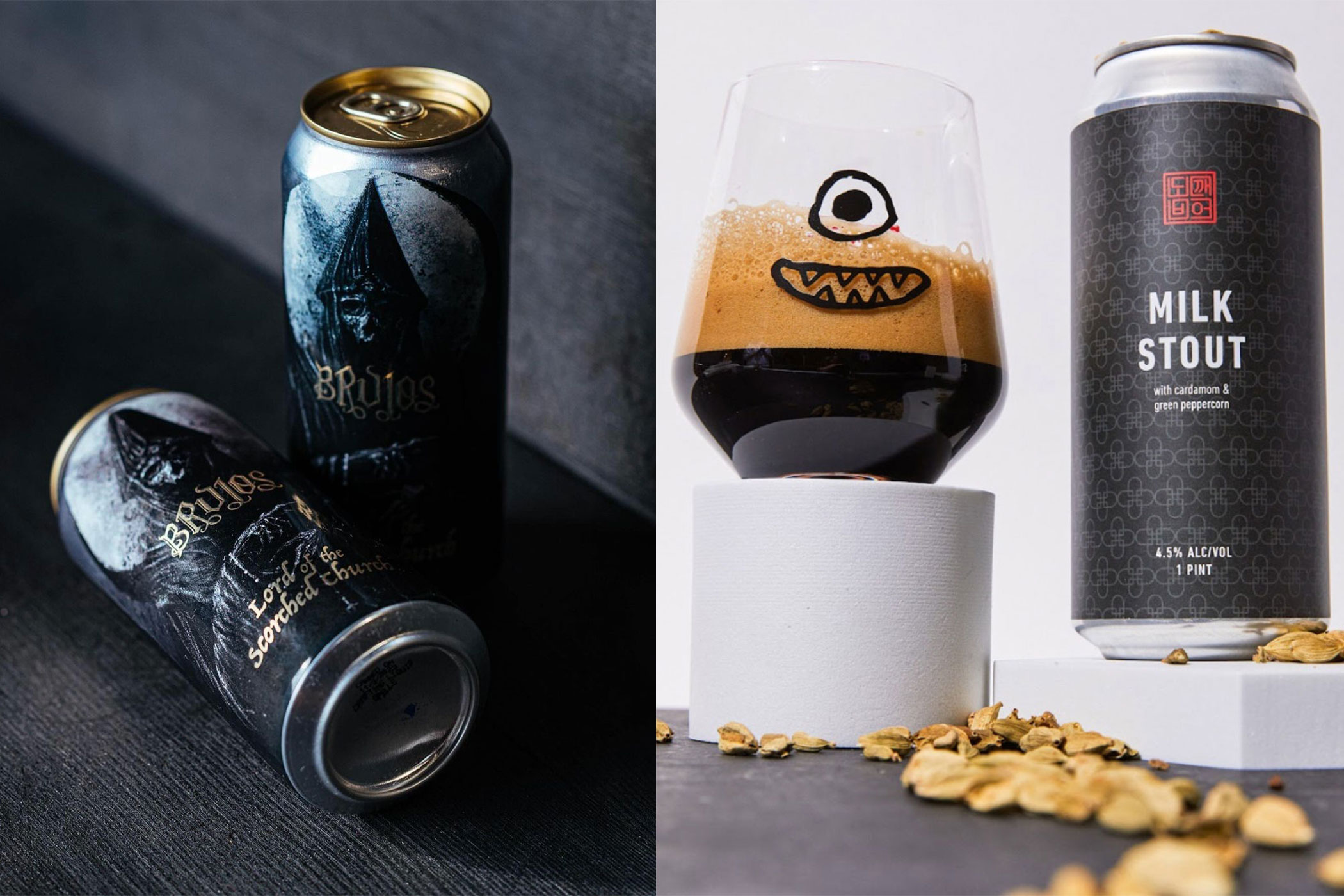Shop
Tenma Beer Project: Not a Brewery. Not a Brewing Company. A Beer Project
Looking for More?
Beer Project. Not Brewing Co. Not Brewery. At Tenma Beer Project, one of our “Best New Breweries of 2023,” co-founders Dana Martindale and Brennan Perry emphasize that they want their beers to evolve constantly. They can’t guarantee their Great American Beer Festival award-winning German-style pilsner, Don’t Fear the Answer, will always be on tap.
They can’t ensure that their Bistro IPA gold medal-winning and People’s Choice Award West Coast IPA, The Infinite Self: Nelson, will always be pouring.
What can they promise? You’ll find something new every time you walk in off the busy San Pablo Ave and into their taproom in Oakland, CA.
On a Friday afternoon, I stood peering up at twelve multi-colored neon clipboards behind Tenma Beer Project’s bar. My eyes skimmed over an Irish red ale, a pale ale, three West Coast IPAs, a doppelbock, one hazy, a rice lager, a helles, a Czech dark lager, a Munich dunkel, and batch two of that GABF bronze-winning German-style pilsner.
I went for the latter, mentioning to Martindale my excitement at seeing that beer back on the menu.
The co-owner, who often runs the front of the house solo, stood behind the bar, emphasizing that this was batch two. Not the same beer, but one tweaked by Perry to add a touch more bitterness to the base.
This is how things work at Tenma Beer Project. Beers never stay the same, and Perry and Martindale never stay in one place. On the afternoon we visited, Martindale tended the bar all night while Perry cleaned lines and drove the van down to Hayward for some deliveries.
Something fused into their bones from working twelve-hour shifts and eighty-hour weeks across a multitude of some of Southern California’s best breweries. Only now the two get to put in the work for themselves.
At Tenma Beer Project, everything is constantly moving, transforming, and growing.
So, while Perry and Brennan can’t and don’t want to promise that Don’t Fear the Answer will always be on tap, you should be okay with that. Because here’s what we can promise: Whatever beer you choose from those neon clipboards…will most likely be outstanding.
Cutting Teeth in Southern California’s Best Breweries
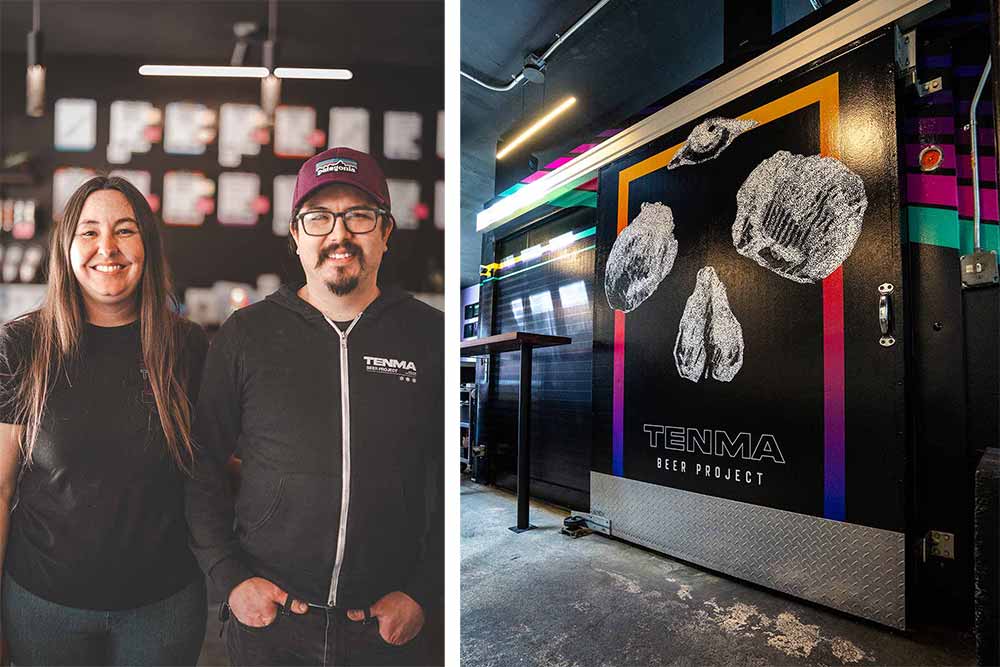
Photography courtesy of Magic Muncie | Hop Culture
To hear Perry and Martindale’s story on the surface sounds like a bunch of happy coincidences.
A swipe right on Tinder.
A sales rep who quit the morning Martindale applied for that same job.
Clicking on the right link from a Google search for “brewery for sale in California.”
But in reality, Martindale and Perry have scraped, fought, sweated, grinded, and worked countless twelve-hour shifts, all so that they can now run a 7-bbl brewery with basically just the two of them (plus a couple of part-time bartenders).
Perry’s training started at Stone in Escondido, CA. While he hated the rigidity of big production brewing, he picked up an irreplaceable technical foundation.
“A big brewery teaches you that you don’t really have the option to make mistakes,” he shares, as we perch at one of the high-top tables, where I can peek at Tenma’s much tinier set-up. “It’s not my style. I’m way more free and enjoy messing around, but honestly, doing things off the cuff without a technical background is a dangerous place.”
Martindale says it best, “You had to learn what not to do so you could have freedom.”
Something Perry understood when he moved to Beechwood Brewing, a hitherto unheard-of spot that Stone kept putting on its guest taps.
“Every time we’d have them, we’d be like, holy shit, this is great!” recounts Perry, who met Martindale while working at Stone.
“I specifically remember his Tinder profile,” says Martindale, a former global product manager for a biotech company. Responsible for selling and marketing biotech products, Martindale traveled the country for trade shows, enjoying craft beer everywhere she went. “His said, ‘brewer looking for a beer buddy. Applicants apply within.’”
He was that lucky right swipe.
When Beechwood opened up its Huntington Beach facility, Perry started poking owner and brewmaster Julian Shrago. He wanted to leave production brewing and move closer to Martindale in Orange County.
“That was probably one of the reasons I got the job,” says Perry. “[Julian] is a very busy person, and if you don’t keep poking, he would just forget.”
Shrago hired Perry as the first employee at their Huntington Beach location, taking him under his wing.
Coincidentally, Martindale, who had quit biotech to start selling beer for Fort Point in Orange County, reached out to see if Beechwood needed a new sales rep.
“It was an absolute coincidence that the existing sales rep had given her two weeks’ notice that day,” says Martindale, who eventually rose to Beechwood’s brewery operations manager.
During that time, one of Perry’s friends, Jon Chiusano, asked him if he wanted to join TAPS, an award-winning lager brewery.
“I could just get the keys to a $4 million facility?” shares Perry. “How could I say no!”
Along with learning lager brewing, Perry finally had the closest thing to creative freedom. “Damn near it,” he says. It was the first time he designed all the recipes and named all the beers.
Martindale followed Perry to TAPS. The next thing both new, Martindale became director of the facility and Perry headed the beer program.
Although things eventually wound down at TAPS with all of Perry’s friends leaving and ownership switching hands, Perry and Martindale learned something.
They could run a business and live together.
“We enjoyed it; it was fun. We worked really [well] together, and we didn’t want to kill each other!” laughs Martindale.
Plus, they no longer wanted to work for other people.
From 15-BBL to 7-BBL
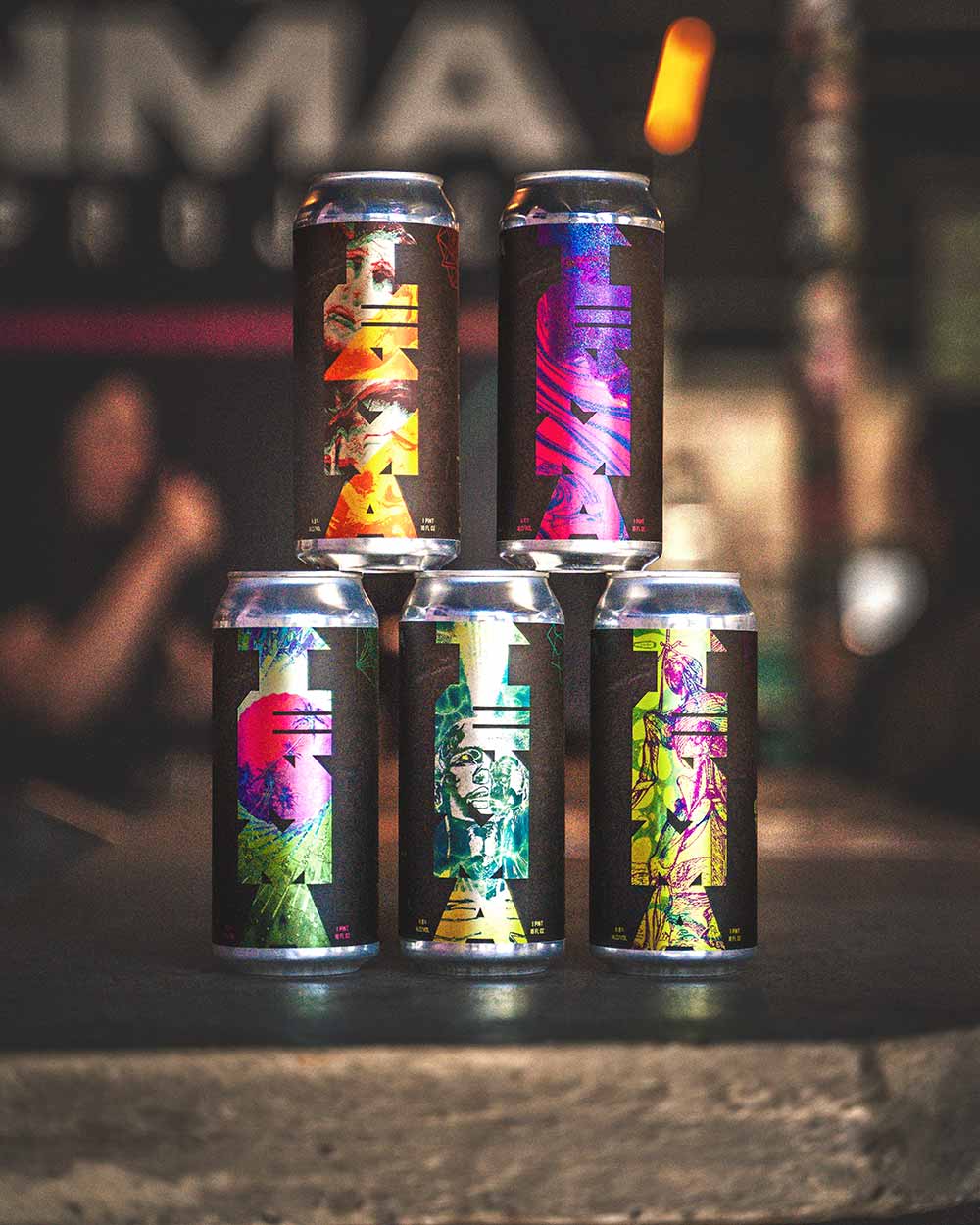
Photography courtesy of Magic Muncie
The thinking ran practically along these lines: “We were already pulling twelve-hour days as salaried people for other businesses,” says Martindale. “But after the antics, disagreements, and committee meetings … we’d come home at the end of the day and be like, why won’t they just let us do [our] job!?”
Starting around late 2018 / early 2019, the two began to seriously plan, crunching numbers in Excel spreadsheets, poking around with banks, and asking other breweries how they got off the ground.
“We had this brilliant idea to have a draft business plan [buttoned] up and ready to go by January 2020,” says Martindale, trailing off into a empty silence because we all knew what came next.
The global pandemic had other plans.
But Martindale and Perry think the pause might have been a blessing in disguise. Originally set on opening a fifteen- to twenty-barrel brewhouse (Laughing Monk-sized, according to Martindale), the two changed course.
“I joke, but I also say seriously, we’re here for both a good time and a long time,” says Martindale. “I don’t want to make easy mistakes right now that are going to snowball.”
Martindale and Perry looked for a space they could handle, for the most part, just between the two of them.
“I literally Googled ‘brewery for sale in California,’” recalls Perry. “I just signed NDAs left and right.”
Perry calls the old Novel Brewing space where Tenma Beer Project now lives the “Goldilocks” of the lot.
Perry, who grew up in San Ramon (about a half hour away), already had family in the area. And according to Martindale, the PNLs looked great. “They were profitable the day they closed,” she says of the former Novel Brewing owners who, after running a brewery for six years, just wanted to retire to Montana.
The facility already had an adequate two-barrel and seven-barrel brewhouse, seven fermenters, and its own canning line.
Set up for success, Martindale and Perry only spent four months bringing the facility up to their standards before brewing their first batch of beer.
Fast Start With Slow Decay
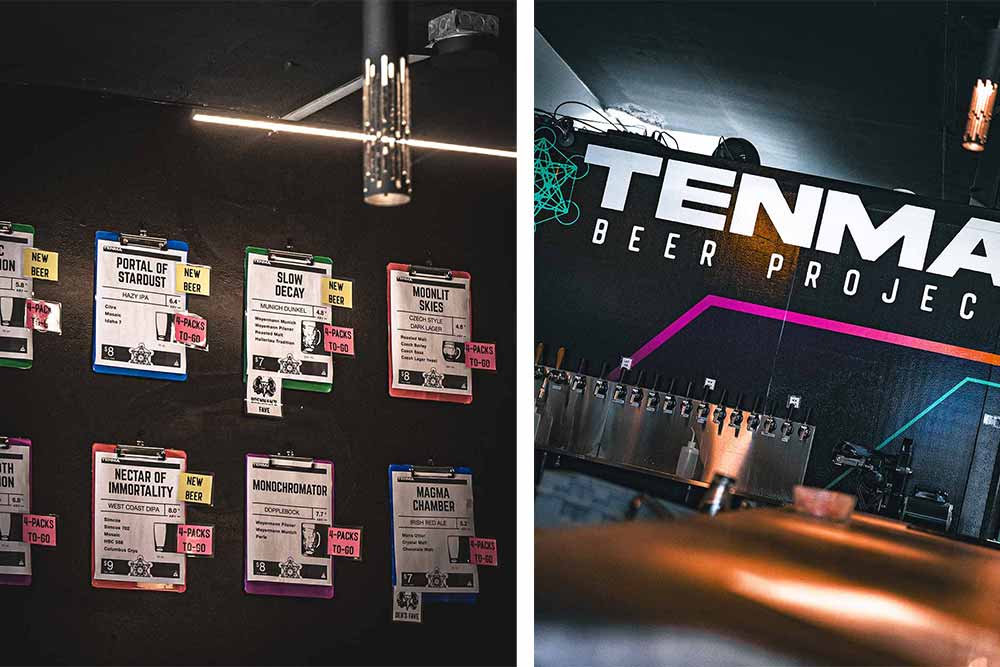
Photography courtesy of Magic Muncie | Hop Culture
Underneath some of the beer flyers on the wall behind the bar, you’ll find little laminated stickers proclaiming “Dana’s Fave,” “Deb’s Fave,” for Deb Tenma, the third co-owner in Tenma Beer Project and Perry’s mom, and “Brennan’s Fave,” currently attached to Slow Decay.
The first beer Perry ever brewed at Tenma, Slow Decay is somewhat of a house dark lager, a Munich dunkel inspired by the first style of lager Perry homebrewed. He kept that thought throughout Stone and Beechwood until he could brew one at TAPS; it immediately won bronze at GABF.
He took that idea, rewrote the recipe, and made his own Munich dunkel at Tenma.
“It’s basically just Munich [malt], a touch of German crystal malt for aroma, a little bit of Pilsner [malt], and all Hallertau Tradition,” says Perry. “I try to keep beers really simple. Especially for German lager, you don’t need to get too fancy.”
A frame of mind you’ll find throughout all of Tenma’s tap list.
Martindale likes to tell folks who come to drink that the beers available will constantly change. “I don’t even promise to make the same beer again, or if we do make the same beer, it’s going to be slightly different each time,” she said. “Rather than core brands, we have what I call core styles. … I can promise you, we’ll always have a pilsner on tap, a West Coast IPA on tap, a pale ale on tap, regrettably a hazy on tap, a dark lager.”
Again, hence “Beer Project”—something continuously in motion.
“The whole point of the project is that it’s ever-evolving,” Perry picks up the thread. “We can really say you’re going to expect something different every time.”
Pursuit of Perfection: GABF Award-Winning German Pilsner
I was stoked to see Don’t Fear the Answer, the German-style Pilsner, back on the menu. But along with Slow Decay, it’s probably one of the only beers you will see make an appearance again.
Even then, as Martindale explained when we first walked in, this won’t be exactly the same beer.
As I sip on the German-style pilsner, Perry looks up at the board, seeming to be mid-calculation. You can almost hear the gears whirring and mashing in his mind, churning out words that slowly dribble down to his mouth. “I’m the first to say that I don’t like almost anything I make,” he laughs. “I could probably point out something about every single one of our beers where I would do something different.”
He adds, “But I don’t know any good brewer that doesn’t do that. … What do we do next time? What if we do this? There are millions of different levers you can pull.”
Perry is maniacal about brewing. He feels the magic happens in the white space where you shift gears from eighty percent to ninety-five percent effort. “Everybody can make beer, and you can get to that eighty percent level. To get that up to ninety takes a lot of energy. And to ninety-five takes almost as much energy as it did to get to ninety,” he shares. “The higher you go in this quality and perfection, the more energy it takes.”
But Martindale and Perry are gluttons for punishment. Even with award-winning beers like Don’t Fear the Answer, Perry wasn’t satisfied. “His complaint about the bronze medal winner was that it wasn’t hoppy enough,” laughs Martindale.
So batch two has the hoppiness cranked up a smidge. Again, Perry calls the recipe relatively simple with just Weyermann Pilsner malt, Tettnang hops, and W-34/70 lager yeast. “There’s not a whole lot more to it,” says Perry shyly, reminding us that lager beer is a process-driven beer instead of an ingredient-driven beer. “If you have solid ingredients, you can make great lager beer with great process; if you use the same ingredients with bad process, it’s not going to taste very good.”
Perry says the malt bill and hops stayed the same. For the second batch, he only changed small details—pH adjustments throughout the mash and boil and slight changes to the mash temperatures and rest times—to ensure that the bitterness shone through “just a touch more,” he said. I wanted it to be bright, dry, and snappy.
The beer breathes life into Tenma’s very bones. “At the end of the day, I’d be lying to you if I told you we make the same beer over and over again,” says Martindale.”That’s not our MO.”
But that’s what makes drinking at Tenma Beer Project such an adventure.
Tried the first batch of Don’t Fear the Answer? Come back for round two and share with Martindale and Perry which you like best.
Or just try something new.
Perry takes everyone’s comments to heart. With a caveat, he says. ”But maybe I don’t; it is my brewery!”
Dark Lager; Light Lager
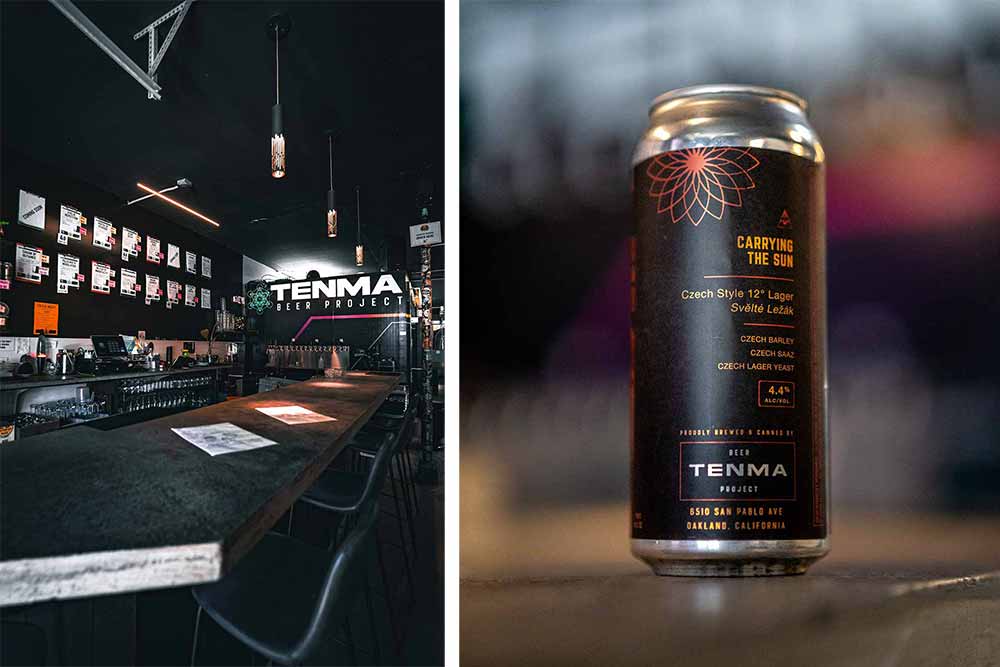
Photography courtesy of Magic Muncie | Hop Culture
There is a sense of opposing balance at Tenma. Perry and Martindale are very much a tandem. Whereas Perry handles all the brewing, beer deliveries, production, and even social media, Martindale runs the front-of-house, accounting, and business operations.
Whereas there are always at least three West Coast ales on the menu, along with a hazy one, you’ll always find just as many lagers.
And within lager, you’re as likely to find more popular pale ones like helles and Czech and German pilsner stacked up against dark ones—doppelbock, dunkel, and Czech dark, currently.
Martindale calls their Czech Dark Lager Moonlit Skies, modeled after a beer from the 500-year-old Czech brewery U Fleků, the beer she’s most proud of. “It is absolutely stellar,” she says.
My dad agreed. Crushing a pint of the dark stuff while we chatted, he picked up “some cinnamon and interesting baking spices,” he shared.
“Probably from the roasted malt,” Perry chimed in, including Munich malt, Caramunich, Carafa III for color, a Czech Pilsner malt, Czech Saaz hops, and a Czech lager yeast.
On the opposing side, Perry points out their Czech Pilsner Carrying the Sun as his pride and joy. And even though the keg kicked the day before we visited, Martindale pulled a can out of the cold box for us to share. “The antithesis to what I said,” she chides.
As Martindale poured a round for everyone, Perry shared that he keeps this beer as true to style as possible. Although the tiny seven-barrel facility isn’t set up for decoction or horizontal lager, he uses all Czech barley, Czech Saaz, and Czech lager yeast in the recipe. He even matched the Czech water profile.
“You can have this Czech beer in a Czech mug off a Czech faucet; literally everything Czech as much as possible,” he says, noting Tenma recently installed two front-facing LUKR faucets (a new variant of the Czech side-pull faucet that’s become popular around the country).
Like his other beers, Perry calls this beer simple yet simultaneously complex.
“Pilsner brewing is probably my favorite because if you want to, you can sit down and talk about the nuances of everything,” he says. “But if you don’t want to, you can just enjoy it.”
With all of us toasting tasters in hand, we got to do a little bit of both.
Tenma Beer Project Loves to be Lean and Agile…And Also Do Everything!
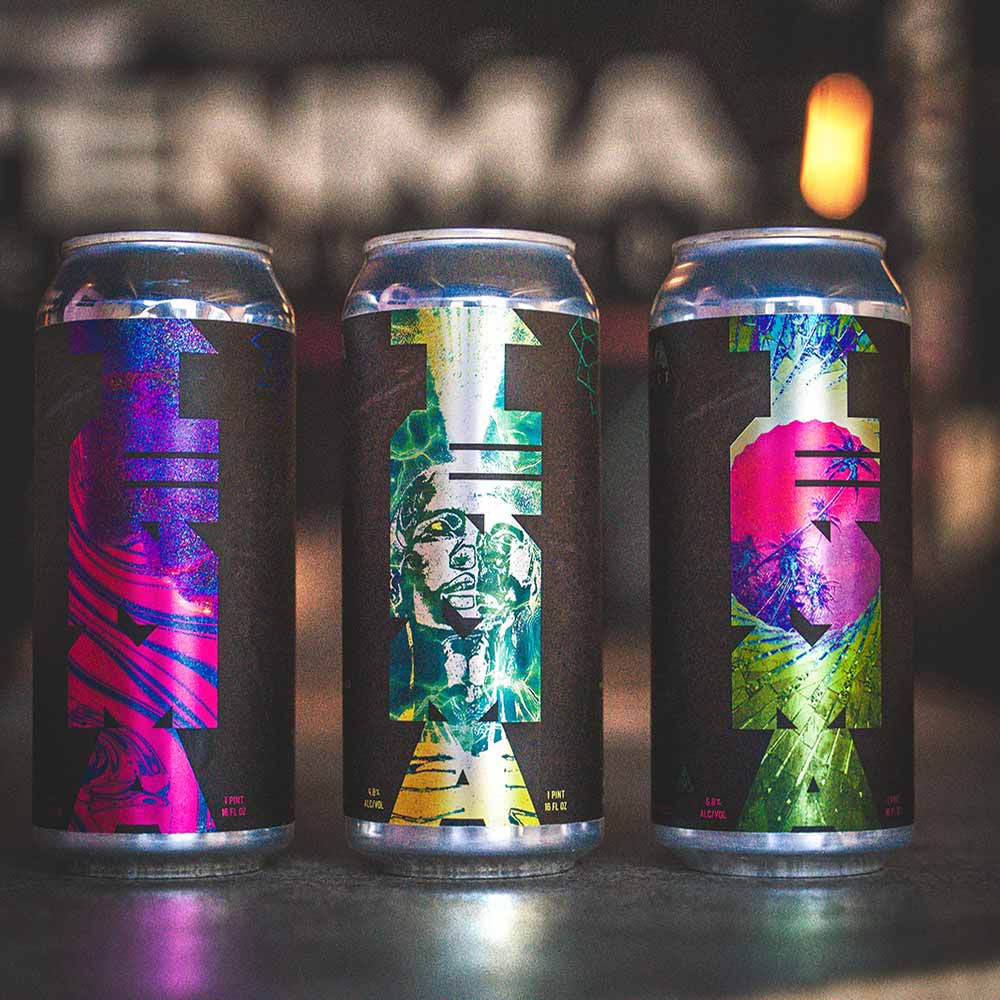
Photography courtesy of Magic Muncie | Hop Culture
As much as the two words “beer project” define Tenma, so do these: lean and agile.
As 3 p.m. ticked by on my phone and my voice memo showed we’d been chatting for a couple of hours, Martindale and Perry stood up. It was time to go to work. The taproom was officially open, and the two-person team had s**t to do.
Martindale opened up the door and sidled behind the bar.
As she turned up the music, folks started to trickle into the taproom. Some she knew by name, mentioning here or there that this beer wasn’t on any more while suggesting something else.
In between pouring, Martindale perched up on the corner of the counter, talking to customers about playing a hard copy of Black Ops for Xbox—her latest GameStop purchase. To others, she offered Smarties stored in a Tupperware container on the bartop.
Although she is not wearing one today, Martindale often rocks a D.A.R.E sweatshirt on her shift.
All a part of the brewery’s vibe that Martindale calls “a little trippy, a little dark, and a little nostalgic.”
If you want to take a crowler of something home, Martindale will fill one outfitted with a label mimicking the old Scotch High Standard VHS Tapes. You know, the one with the bright yellow, orange, purple sphere that sort of looks like a setting sun?
First time in, and not sure what to try? Martindale will pour you any of their beers in a 4oz taster, 12oz, or 16oz with the appropriate glassware. But she won’t do half-pours “because an 8oz pour for me isn’t enough to really enjoy the beer; it’s basically three gulps, and it’s gone,” she says. “I wanted people to feel like they were actually having a beer.”
As soon as the taproom opened, we lost sight of Perry for a bit, catching glimpses as he rolled in bags of grain and cleaned the draft lines. After spending two hours talking to us on a Friday afternoon, he said he still had to drive down to Hayward to drop off beer.
All a part of how operations at Tenma stay lean and agile.
Somehow, in between all this, Perry also handles the brewery’s social media, refusing to relinquish control to anyone else.
“It’ll hold us back a little bit because I won’t just let somebody else do it,” explained Perry, a photography hobbyist since high school. He said he’d hire someone to help with production before letting anyone run Tenma’s social media.
Although Martindale said she’d love to keep Perry in the brewhouse as much as possible, it’s lean and agile for now.
But ask us, and it seems to be working.
Foam for the Road
As we packed up to go, Martindale turned to us, asking if we wanted a Mlíko for the road. While traditionally served as a Czech mug utterly full of foam, Mlíko at Tenma typically comes in a smaller size.
After a quick pull from the Czech dark lager LUKR faucet, Martindale plopped four-ounce tasters of a deliciously thick, wet mocha-color foam in front of us.
We cheered and slung the whipped cream-like froth back into our throats. “It’s very espresso to me,” said Martindale. “It’s like a Frappuccino but with no ice; it’s so good!”
While not a part of the regular menu, Martindale loves to pour a Mlíko or Snyt (another type of Czech pour focused on varying foam levels) for anyone who asks for it.
Just another example of how at Tenma you can get as deep and geeky as you want with beer, or you can just chill on a Friday afternoon drinking a Czech pilsner, German-style pilsner, West Coast IPA, who knows—whatever they have on the menu.
As Martindale said, she’ll never guarantee they have anything on. And that should be okay.
We had another thought as we strolled into the waning afternoon sun. With the menu changing so frequently, every time you come to Tenma Beer Project will be a new adventure.
We’d never have that same Friday afternoon killing a couple of hours with Martindale and Perry again.
But that’s okay.
Because we realized that every time we visited Tenma Beer Project…we knew it would probably be outstanding.

